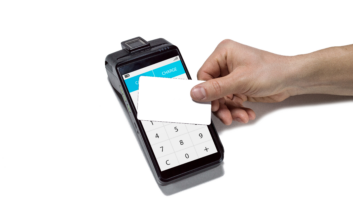Any panel named “Five Technologies To Watch” and mentions driverless cars, sensors on water bottles and surfboards, tracking your vitals with your smartphone, drones, and the Rosie the Robot character from “The Jetsons” has got to be entertaining.
It was also informative and, for more than a few retailers and manufacturers reading this, it may provide some actual product opportunities in the near future — or at least some food for thought.
That’s what I thought when I visited the aforementioned panel Monday morning at the Consumer Electronics Association (CEA) Industry Forum, being held here this week at the Hyatt Regency Century Plaza.
Jeff Joseph, CEA’s communications and strategic relations senior VP, moderated a lively discussion with CEA’s chief economist and research senior director Shawn DuBravac; Ross Rubin, principal analyst of Reticle Research; and Eric Taub, technology writer with The New York Times.
DuBravac got the ball rolling by noting that water bottles and surfboards — and really anything that you want to measure a performance — can have sensors put on them, and can then communicate with the Internet using radio waves. Heck, even that “ball” I just mentioned: Wouldn’t that be great for golf? The recycled golf ball business wouldn’t care for it though.
That is “The Internet of Things” concept, or part of it.
Taub said that health care and sensors is “the beginning of a new revolution. Today’s EKG is an iPhone” with sensors and a proper app, which can “reduce the incidence of strokes because you can be measured on a regular basis, instead of once a year.”
Rubin, referring to CEA’s “Five Technology Trends To Watch,” a special supplement to the group’s i3 publication, said that smartphones and tablets are the “new viewfinder” or “shutter” to this new world.
When Joseph asked about the privacy issues the Internet of Things presents, Rubin said it does “strain the next level of privacy” and that it does “raise the profile of many disclosure policies for social networks, carriers, medical providers, our utilities, our cars.”
All agreed that this new level of privacy must be a “distributed responsibility” of government, media and the individual.
However Taub said, “Thirty years ago, if you wanted to make a phone call in public, you would find a phone booth. Now you make that call — or posting from your smartphone — and you open up your private life” via social networks, arguing that today’s public is not as concerned about privacy.
When asked what industries will resist these changes, DuBravac said that as with music, movies, books and other established industries that have resisted digitization, “any industry, like health records or health information,” will be hurt by this.
Regarding driverless cars, while they will be at International CES, they won’t really be on the highways for 15 or 20 years, panelists said.
And as for Rosie the Robot, Rubin said that doing the laundry, dusting and even food preparation might be handled by robots in the foreseeable future, but Taub seemed to doubt it. I do too.
Meanwhile, DuBravac piped up and said, “I’ve been arguing for a Cyborg TechZone at CES.” Maybe at the 2024 International CES, but 2014? It could be a little early.
For all this and more on the subject, check out CEA’s “Five Technology Trends To Watch,” a special supplement to CEA’s bimonthly flagship publication, It Is Innovation (i3). The complete publication can be found online at CE.org/FiveTechs.













